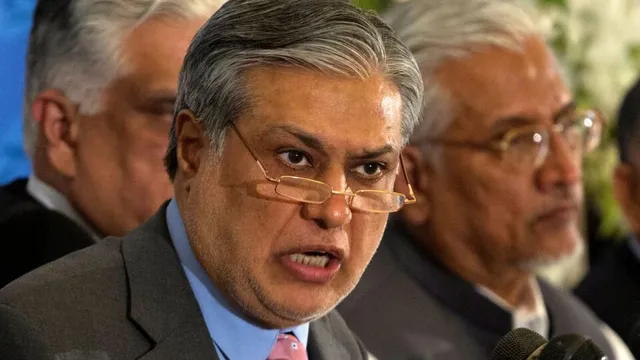- By Supratik Das
- Sat, 26 Jul 2025 03:45 PM (IST)
- Source:JND
In a major diplomatic gesture, Pakistan's Foreign Minister and Deputy Prime Minister Ishaq Dar has reaffirmed Islamabad's desire to revive the dialogue with India, calling on New Delhi to formally reply to its invitation. Addressing a session organised by the Atlantic Council think tank in Washington, Dar claimed that Pakistan stands willing to hold talks with India on important issues such as trade, regional security, and counterterrorism. “Pakistan is ready to work and cooperate with India on all fronts—from trade to counter-terrorism,” Dar said, adding that the country seeks a “meaningful dialogue” under the composite framework used in previous bilateral negotiations.
He also reaffirmed Pakistan's role as a frontline state against terror, pointing to historic contributions and sacrifices. Islamabad highlighted the importance of a greater US-Pakistan partnership against extremist networks, a gesture coming at a time of increasing worldwide attention being focused on terrorist hideouts in the region. India has continuously raised alarms about Pakistan's inability to act decisively against entities working from its territory.
Dar's comments follow increased tensions following the Indian army's Operation Sindoor, which allegedly targeted nine terrorist launch sites in Pakistan-occupied territory. The operation followed the April 22 Pahalgam attack within the Baisaran Valley of Jammu and Kashmir, in which 26 tourists were killed. India has not yet responded to Dar's recent entreaty. The Ministry of External Affairs (MEA) has insisted that any dialogue with Pakistan should be without cross-border terrorism and foreign interference in India's internal matters.
Pak FM Admits US Role In Reducing Tensions
On his Washington visit, Dar had a meeting with US Secretary of State Marco Rubio to address a variety of topics such as regional stability and trade cooperation. The foreign minister of Pakistan appreciated the United States for what he termed as a "pivotal role" in de-escalating recent tensions between India and Pakistan. "President Trump and Secretary Rubio played a critical role in bringing a ceasefire about and averting a larger war," Dar asserted. Still, India has always maintained that the ceasefire agreement was a bilateral one between Indian and Pakistani command authorities with no third party involved.
Responding to the recent US move to label The Resistance Front (TRF) as a Foreign Terrorist Organization (FTO), Dar stated that Pakistan had "no problem" with the designation. He, however, dissociated TRF from Pakistan-based terror outfit Lashkar-e-Taiba (LeT), in contrast to India and the US accusations of affiliations between the two. India has identified TRF as a LeT front for orchestrating several terror attacks, including the Pahalgam massacre. The Pakistani side has continuously sought evidence of TRF's direct links to the state or its agencies.
Kashmir Issue Re-emerges In Dialogue
As anticipated, the issue of Jammu and Kashmir dominated Dar's speech. He labeled Kashmir as the "core issue" between Pakistan and India and urged that it be resolved on the basis of UN Security Council resolutions and the "aspirations of the Kashmiri people." India dismissed any move to internationalise the issue, holding firm that Jammu and Kashmir is an internal matter and not for external mediation. Bilaterally, Dar and Rubio discussed means of increasing trade and investment relations between Pakistan and the US. The main areas discussed were technology, artificial intelligence, cryptocurrency, and strategic minerals. Rubio indicated American interest in deepening cooperation in the mineral industry, while Dar indicated that a possible trade agreement with the US is "very close," even as Washington officially declined to announce any such development.
Ishaq Dar's invitation to renewed India-Pakistan talks marks a possible change in the diplomatic trajectory of Pakistan. But with the specter of the Pahalgam terror attack and Operation Sindoor hanging over it, the steps ahead will also be contingent upon how India reacts, one that will remain tentative and subject to Pakistan's visible actions against terror.

